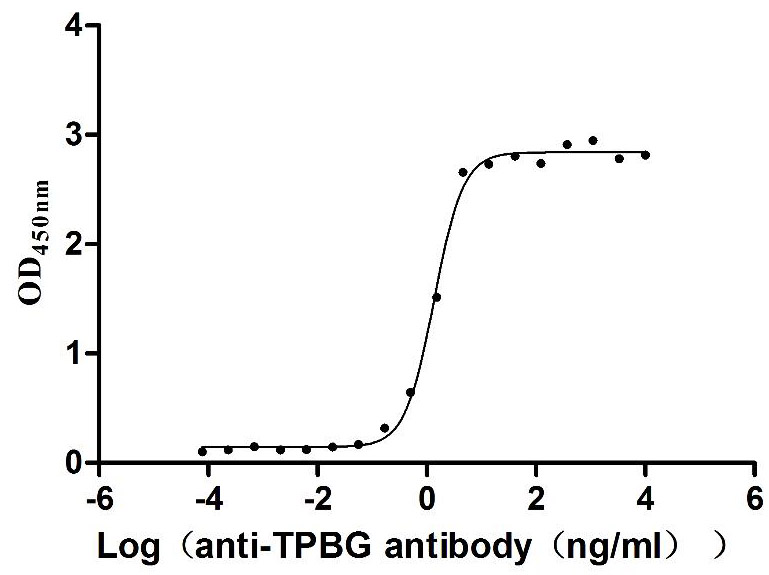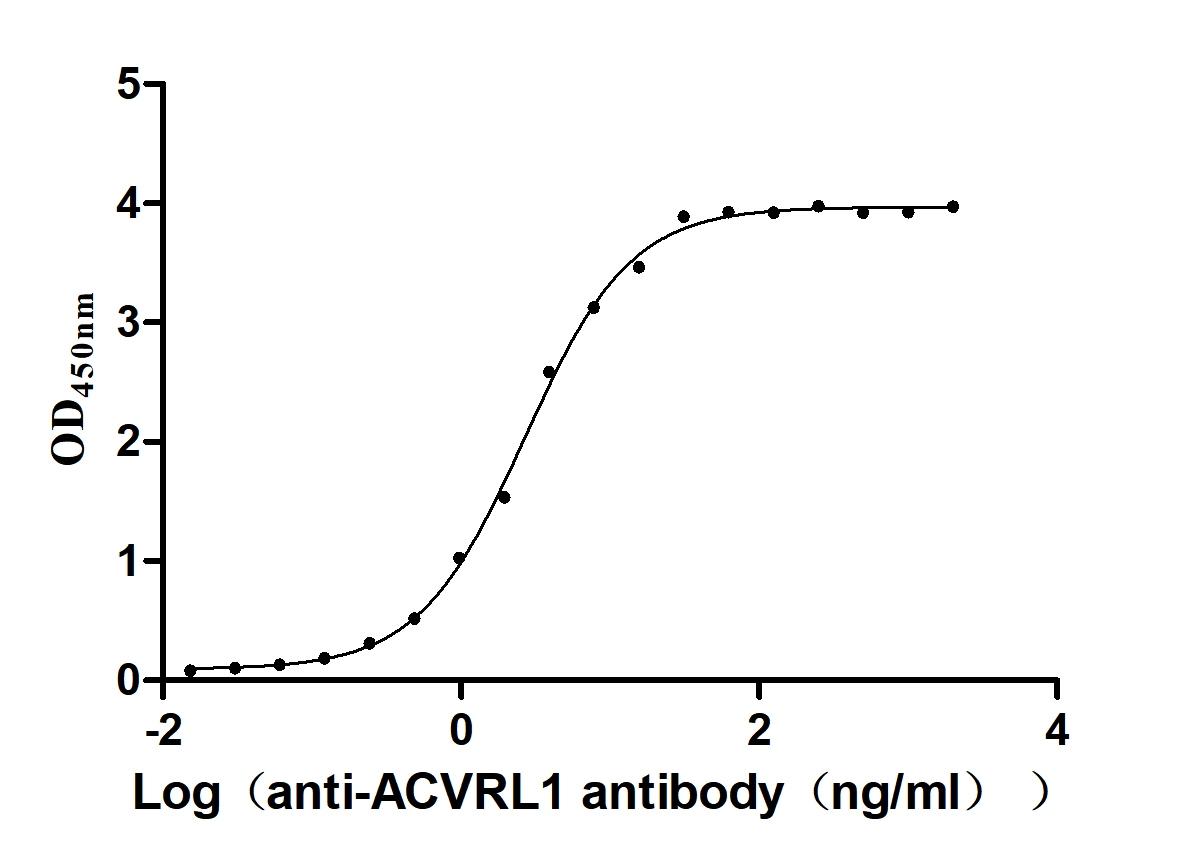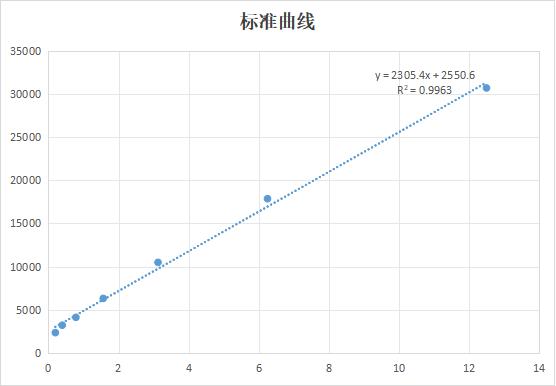Recombinant Human Tumor necrosis factor receptor superfamily member 10D (TNFRSF10D), partial
-
货号:CSB-YP887006HU
-
规格:
-
来源:Yeast
-
其他:
-
货号:CSB-EP887006HU
-
规格:
-
来源:E.coli
-
其他:
-
货号:CSB-EP887006HU-B
-
规格:
-
来源:E.coli
-
共轭:Avi-tag Biotinylated
E. coli biotin ligase (BirA) is highly specific in covalently attaching biotin to the 15 amino acid AviTag peptide. This recombinant protein was biotinylated in vivo by AviTag-BirA technology, which method is BriA catalyzes amide linkage between the biotin and the specific lysine of the AviTag.
-
其他:
-
货号:CSB-BP887006HU
-
规格:
-
来源:Baculovirus
-
其他:
-
货号:CSB-MP887006HU
-
规格:
-
来源:Mammalian cell
-
其他:
产品详情
-
纯度:>85% (SDS-PAGE)
-
基因名:
-
Uniprot No.:
-
别名:CD 264; CD264; DcR 2; DcR2; Decoy receptor 2; Decoy with truncated death domain; OTTHUMP00000123528; TNF receptor related receptor for TRAIL ; TNF related apoptosis inducing ligand receptor 4; TNF-related apoptosis-inducing ligand receptor 4; TNFRSF 10D; TNFRSF10D; TR10D_HUMAN; TRAIL R4; TRAIL receptor 4; TRAIL receptor with a truncated death domain; TRAIL-R4; TRAILR4; TRUNDD; Tumor necrosis factor receptor superfamily member 10D; Tumor necrosis factor receptor superfamily; member 10d; decoy with truncated death domain
-
种属:Homo sapiens (Human)
-
蛋白长度:Partial
-
蛋白标签:Tag type will be determined during the manufacturing process.
The tag type will be determined during production process. If you have specified tag type, please tell us and we will develop the specified tag preferentially. -
产品提供形式:Lyophilized powder
Note: We will preferentially ship the format that we have in stock, however, if you have any special requirement for the format, please remark your requirement when placing the order, we will prepare according to your demand. -
复溶:We recommend that this vial be briefly centrifuged prior to opening to bring the contents to the bottom. Please reconstitute protein in deionized sterile water to a concentration of 0.1-1.0 mg/mL.We recommend to add 5-50% of glycerol (final concentration) and aliquot for long-term storage at -20℃/-80℃. Our default final concentration of glycerol is 50%. Customers could use it as reference.
-
储存条件:Store at -20°C/-80°C upon receipt, aliquoting is necessary for mutiple use. Avoid repeated freeze-thaw cycles.
-
保质期:The shelf life is related to many factors, storage state, buffer ingredients, storage temperature and the stability of the protein itself.
Generally, the shelf life of liquid form is 6 months at -20°C/-80°C. The shelf life of lyophilized form is 12 months at -20°C/-80°C. -
货期:Delivery time may differ from different purchasing way or location, please kindly consult your local distributors for specific delivery time.Note: All of our proteins are default shipped with normal blue ice packs, if you request to ship with dry ice, please communicate with us in advance and extra fees will be charged.
-
注意事项:Repeated freezing and thawing is not recommended. Store working aliquots at 4°C for up to one week.
-
Datasheet :Please contact us to get it.
相关产品
靶点详情
-
功能:Receptor for the cytotoxic ligand TRAIL. Contains a truncated death domain and hence is not capable of inducing apoptosis but protects against TRAIL-mediated apoptosis. Reports are contradictory with regards to its ability to induce the NF-kappa-B pathway. According to PubMed:9382840, it cannot but according to PubMed:9430226, it can induce the NF-kappa-B pathway.
-
基因功能参考文献:
- The high-dose hook effect was apparent during ELISA testing of uDcR2 in chronic kidney disease (CKD) patients, yet dilution of the urine samples neutralized this effect. However, the use of a four-fold dilution of urine for uDcR2/cre testing may eliminate the high-dose hook effect and make it possible to effectively monitor the severity of TII in CKD patients. PMID: 29879421
- results suggest that CD264 is a surface marker of cellular age for bone marrow-derived mesenchymal stem cells. PMID: 28962588
- Urinary DcR2 could potentially serve as a novel biomarker for tubulointerstitial injury and may reflect senescence of renal proximal tubular cells in diabetic nephropathy. PMID: 28356293
- Results identified epigenetic inactivation of TNFRSF10C and TNFRSF10D in majority of cervical cancer cases. PMID: 26542757
- membrane expression more common in endometrioid endometrial cancer than in normal endometrium PMID: 24649804
- This study identified TNFRSF10D DNA methylation status as an independent prognostic biomarker for relapse-free survival and overall mortality in non-metastatic melanoma patients. PMID: 25003639
- The membrane expression of the TRAIL receptors DR4, DR5, DcR1 and DcR2 is greater in normal endometrium than endometrioid adenocarcinoma (EAC). The level of the receptors in EAC is not dependent on grading and staging and does not predict survival. PMID: 23584885
- the results presented here claim for a relevant impact of aberrant methylation of decoy receptors in melanoma and allow to understand how the silencing of DcR1 and DcR2 is related to melanomagenesis. PMID: 24211571
- TRAIL receptor-4 expression profiles on T cells might be important in revelation of rheumatoid arthritis pathogenesis. PMID: 20799941
- ANT2 shRNA treatment sensitized MCF7, T47 D, and BT474 cells to TRAIL-induced apoptosis by up-regulating the expression of TRAIL death receptors 4 and 5 (DR4 and DR5) and down-regulating the TRAIL decoy receptor 2 (DcR2). PMID: 20875141
- these results demonstrated that hypoxia-inducible factor 1alpha played a crucial role in regulating the transcription of DcR2. PMID: 20018172
- Enhanced expression of DcR2 promotes peripheral blood eosinophil survival in the airways of allergic asthmatics following segmental antigen challenge. PMID: 12421985
- Cytotoxicity and apoptosis induced by TRAIL to beta-cell lines CM were inhibited competitively by soluble TRAIL receptors, R1, R2, R3 or R4. PMID: 12488957
- Respiratory syncytial virus infection strongly up-regulated the expression of tumor necrosis factor-related apoptosis-inducing ligand (TRAIL) and its functional receptors death receptor 4 (DR4) and DR5. PMID: 12915532
- Our results demonstrate that DcR1 and DcR2 genes are frequently methylated in various tumor types and aberrant methylation was the cause for silencing of DcR1 and DcR2 expression. PMID: 14999791
- The DcR2 was found to have a truncated and non-functional death domain. PMID: 15538968
- CD8+ lymphocytes and NKT lymphocytes, but not CD4+ lymphocytes, express TRAIL-R4 PMID: 15919363
- Resistance to TRAIL-induced apoptosis in acute myeloid leukemia cells is associated with expression of TRAIL-R4. PMID: 15921376
- Preligand assembly domain-mediated ligand-independent association between TRAIL receptor 4 (TR4) and TR2 regulates TRAIL-induced apoptosis. PMID: 16319225
- DCR2 was found positive in 81 and 33% normal, 46 and 10% nodular hyperplasia, 74 and 36% PIN tissues, 87 and 89% low-grade carcinomas, and 100 and 93% high-grade carcinomas PMID: 16799475
- TRAIL-R4-beta is a new splice variant of TRAIL-receptor 4 lacking the cysteine rich domain 1 PMID: 16934748
- The specificity of DcR1- and DcR2-mediated TRAIL inhibition reveals an additional level of complexity for the regulation of TRAIL signaling. PMID: 16980609
- CASP8, DCR2, and HIN-1 methylation leads to progression of neuroblastoma PMID: 17545522
- These data strongly support a recent proposal that a segment at 8p21.3 contains crucial prostate cancer tumor suppressors. PMID: 18460741
- DCR2-methylated patients showed significantly poorer 5-year event-free survival in the whole neuroblastoma group (43% PMID: 18980997
- High TRAIL death receptor 4 and decoy receptor 2 expression correlates with significant cell death in pancreatic ductal adenocarcinoma patients. PMID: 18981952
- Results indicate that disc cells, after herniation, undergo apoptotic cell death via the DR5/TRAIL pathway. PMID: 19730199
显示更多
收起更多
-
亚细胞定位:Membrane; Single-pass type I membrane protein.
-
组织特异性:Widely expressed, in particular in fetal kidney, lung and liver, and in adult testis and liver. Also expressed in peripheral blood leukocytes, colon and small intestine, ovary, prostate, thymus, spleen, pancreas, kidney, lung, placenta and heart.
-
数据库链接:
HGNC: 11907
OMIM: 603614
KEGG: hsa:8793
STRING: 9606.ENSP00000310263
UniGene: Hs.213467
Most popular with customers
-
Recombinant Human Receptor tyrosine-protein kinase erbB-2 (ERBB2), partial (Active)
Express system: Mammalian cell
Species: Homo sapiens (Human)
-
Recombinant Human IGF-like family receptor 1 (IGFLR1), partial (Active)
Express system: Mammalian cell
Species: Homo sapiens (Human)
-
Recombinant Mouse Claudin-18 (Cldn18)-VLPs (Active)
Express system: Mammalian cell
Species: Mus musculus (Mouse)
-
Recombinant Human Trophoblast glycoprotein (TPBG), partial (Active)
Express system: Mammalian cell
Species: Homo sapiens (Human)
-
Recombinant Human Serine/threonine-protein kinase receptor R3 (ACVRL1), partial (Active)
Express system: Baculovirus
Species: Homo sapiens (Human)
-
Recombinant Macaca fascicularis CUB domain containing protein 1 (CDCP1), partial (Active)
Express system: Mammalian cell
Species: Macaca fascicularis (Crab-eating macaque) (Cynomolgus monkey)
-
Recombinant Human Urokinase-type plasminogen activator(PLAU) (Active)
Express system: Mammalian cell
Species: Homo sapiens (Human)
-
Recombinant DT3C (Diphtheria toxin & spg 3C domain) for Antibody Internalization Assay (Active)
Express system: E.coli
Species: N/A


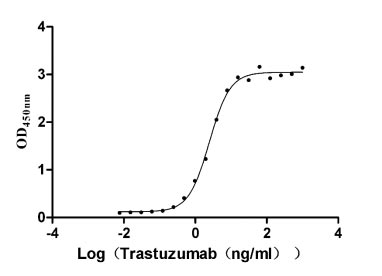
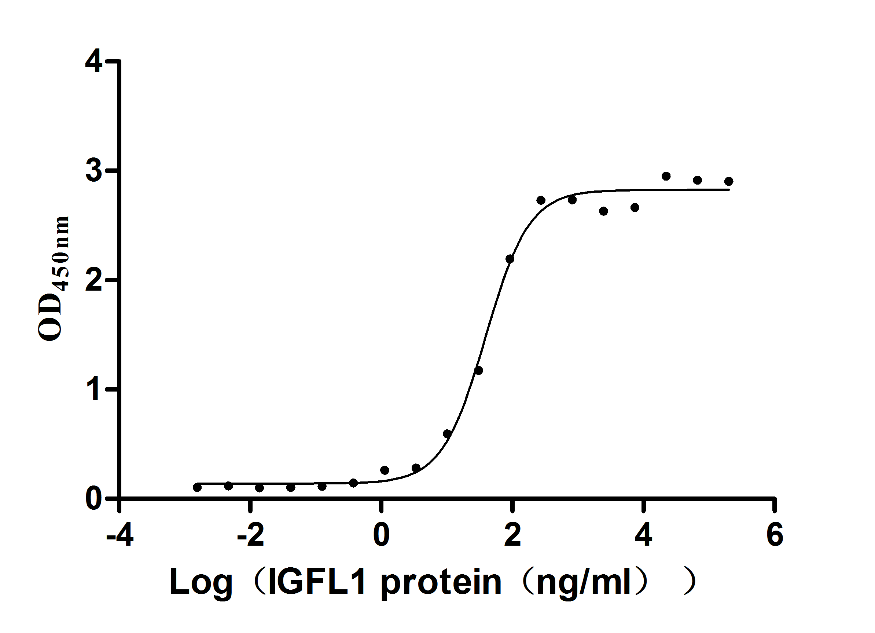
-AC1.jpg)
